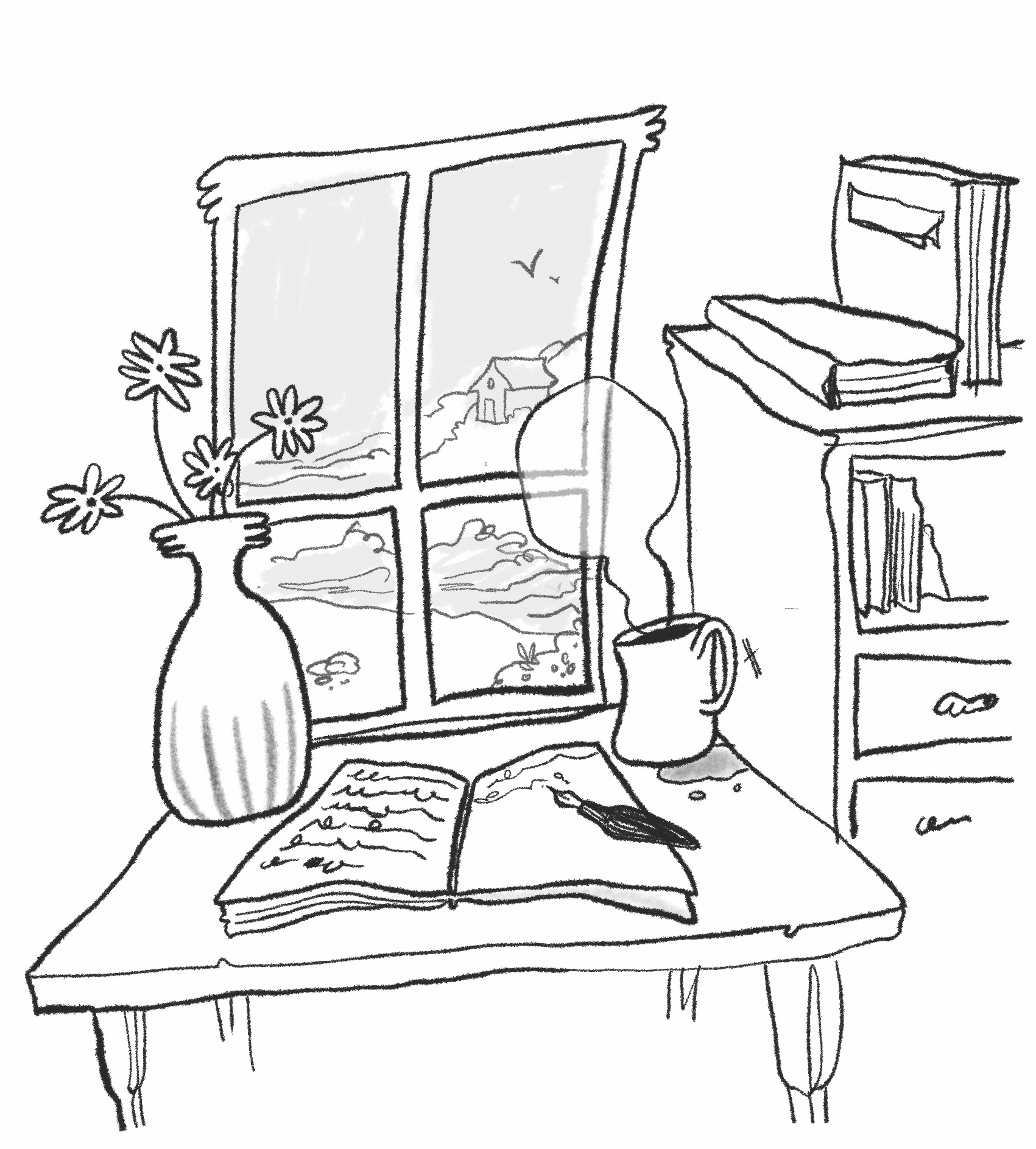“Dead Writers” podcast spreads literary education beyond academia, encourages exploration
October 25, 2024
 Celeste Mercier
Celeste MercierAssociate Professor of Africana Studies and English Tess Chakkalakal and Professor of English Brock Clarke are receiving national recognition for their podcast, “Dead Writers,” which was named as a finalist in the “Best Co-Host” category in the Signal Awards. The awards showcase meaningful and compelling voices in podcasting.
“Dead Writers,” which aired for the first time this summer on Maine Public Radio, follows Chakkalakal and Clarke on a road-trip journey through famous 19th-century American authors’ historical homes. Along the way, Chakkalakal and Clarke explored each featured writer through interviews with people involved in the preservation of the authors’ homes and lives.
“The subject [of the podcast] is the literary houses and their relationship to the production of great masterpieces to great works of literature,” Chakkalakal said. “Is there a relation, or is there not a relation?”
In the process of producing the seven-episode podcast, Chakkalakal and Clarke took an experiential approach, facilitating conversations about each author. Chakkalakal, a literary critic, and Clarke, a fiction writer, brought different perspectives to the same subject. Years in the making, “Dead Writers” emerged out of a shared interest in writers’ homes.
“I wrote this book almost 15 years ago now called ‘An Arsonist’s Guide to Writers’ Homes in New England,’ which is a lot about writers’ homes. It’s mostly satire,” Clarke said.
On the other hand, Chakkalakal’s involvement with the restoration of the Harriet Beecher Stowe House in Brunswick instilled in her an appreciation of writers’ homes.
“I read Brock’s novel in the midst of trying to save the Stowe house,” Chakkalakal said. “I thought it was really funny, and then I just kind of went to Brock and I said, ‘What do you think about [making] a podcast?’”
“Dead Writers” highlights the tension between Clarke and Chakkalakal’s views over the importance of literary sites to literature itself.
“[Chakkalakal] is a big believer in the importance of writers’ houses,” Clarke said. “And I think that’s kind of silly, so we got together and hashed out our differences by way of this podcast.”
Chakkalakal thinks that public access to dead authors’ homes can demystify authors and the act of writing itself, as it did for her while she was recording the podcast.
“[For me,] it really made these writers seem like everyday people,” Chakkalakal said. “And that gives you the idea that maybe you could do this too, that you just sit around and can read and write, and it’s very difficult to do it, but it is possible.”
While Clarke was recording the podcast, he enjoyed discovering what things he and Chakkalakal agreed and disagreed on.
“Because there are two of us, there’s always the possibility of surprise—sometimes conflict, sometimes agreement,” Clarke said. “But that’s part of the fun of it, to see what would happen with each other.”
Chakkalakal hopes that by reaching a wide audience of listeners, “Dead Writers” will increase exposure to literary education outside of elite academic institutions. It’s important to her that the podcast is a hands-on conversation, not a technical lecture.
“I teach Bowdoin students all the time, but I’d like to also take [literary discussions] out of this elite, private, difficult-to-access environment,” Chakkalakal said.
After hearing praise from listeners and receiving critical acclaim in the Signal Awards, Chakkalakal and Clarke are looking to expand the scope of the second season of “Dead Writers.” They hope to include more contemporary authors and other literary sites in New England, while also reaching a broader audience.
“It’s a very mixed podcast,” Chakkalakal said. “It’s trying to appeal to young and old and both Maine-based listeners, but also we’re trying to develop a kind of national presence.”
Chakkalakal’s goal with the podcast was to make people think about a subject they might not have previously had interest in.
“[These literary houses] want the public to come in and access this stuff, and either people don’t know about it or they don’t think it’s interesting,” Chakkalakal said. “What I saw as our job was to make it interesting, and I hope we did. Based on the response we’ve gotten, it seems to have worked.”
Comments
Before submitting a comment, please review our comment policy. Some key points from the policy:
- No hate speech, profanity, disrespectful or threatening comments.
- No personal attacks on reporters.
- Comments must be under 200 words.
- You are strongly encouraged to use a real name or identifier ("Class of '92").
- Any comments made with an email address that does not belong to you will get removed.

You can listen to the podcast at https://www.mainepublic.org/dead-writers and follow us on instagram @deadwriterspod.
Thanks for listening!